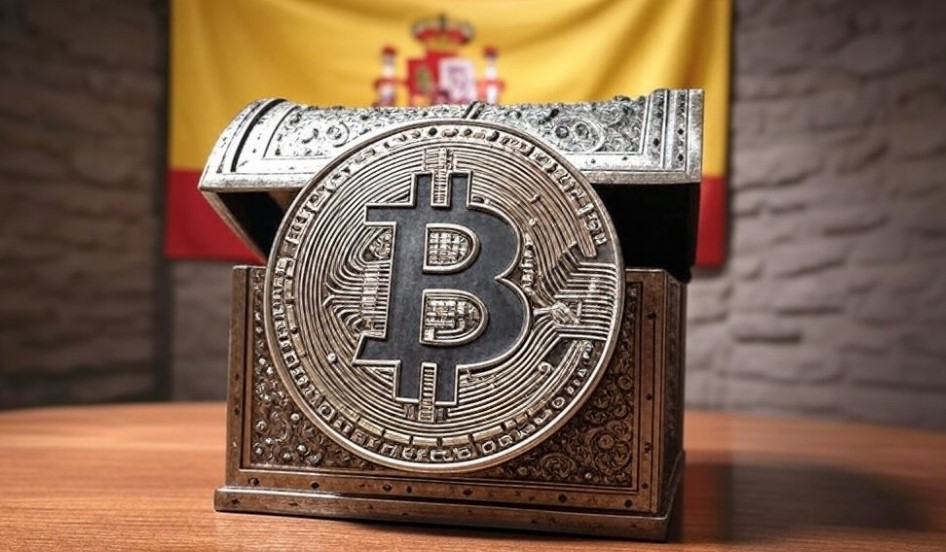Since the middle of this year, the issue of strategic bitcoin (BTC) reserves among companies has been escalating. Currently, more than a dozen companies from different parts of the world, and dedicated to different areas, announced their own BTC treasuries.
The general idea among these companies is to seek to diversify their treasuries and protect themselves with an asset like BTC. This is because bitcoin, not being subject to the inflation of fiat currencies, can act as a reserve of value in unstable or inflationary economic contexts.
Many of these companies are located in the US, inspired by the example of MicroStrategy, the company of bitcoiner Michael Saylor. This company is currently the one with the largest amount of BTC in custody, with up to 439,000 bitcoin to date, as reported by CriptoNoticias.
In Europe, there have also been notable cases. In Malta, the asset management firm Samara Asset Group, which is also listed on the German stock exchange, announced in October the creation of its own bitcoin treasury, acquiring coins through the issuance of debt bonds.
Bitcoin reserves are discussed in Spain
The discussion of bitcoin’s strategic reserves has also reached Spain, an Iberian country where the cryptocurrency ecosystem is already well established. Spain occupies the place 25 in the Cryptoactive Adoption Index prepared by the firm Chainalysis, evidencing an important movement in that country regarding cryptocurrencies.
On social networks, the debate about the creation of bitcoin treasuries in Spain has already taken place. Although at a nation-state level, beyond corporate. In November, the renowned bitcoiner Javierbitcoin, speak of the need for that country to establish BTC as a strategic reserve “before other countries do so, since it is something that will inevitably happen.”
Something similar was presented by Bitcoin For Spain, which is a Movement for the accumulation of Bitcoin in the treasury of that country. This organization said that the cost of Spain not creating its own treasury right now would be that it would occur when BTC costs $1 million or more. “We must act now,” pointed out.
Returning to the topic of a bitcoin reserve at the corporate level between Spanish companies, it is well known that Spain is recognized for having one of the Broader tax regimes for cryptocurrencies and companies that work with them. Furthermore, that nation has been inspired by the MiCA Law, which comes into force in its entirety in 2025, to regulate this sector.
Precisely the above raises doubts about whether Spanish companies can save in bitcoin. And, being a country so strictly regulated in terms of taxation, launching a treasury plan aimed at BTC It could be a difficult process to carry out.
However, in general terms, A Spanish company can save in bitcoin and create its own strategic reserves of BTC, as there are currently no specific laws prohibiting companies from owning or investing in BTC.
Jesús Lorente, Spanish economist and expert in cryptocurrency taxation, explained to CriptoNoticias that, in principle, any company in Spain can have its reserves in bitcoin. “There is no problem,” he said.
He said that, from the point of view of Spanish legislation, “it is totally legal for companies to want to store their capital however they want, even in BTC.” Furthermore, he maintains that, for Spanish companies, having BTC is like having other investment assets, such as shares.

“Therefore, it is another asset of the company and there is no limit from a legal point of view,” said Lorente, who is also the executive director of the consulting firm CLCRIPTO.
What does the MiCA Law say?
Part of the doubt about whether a Spanish company can save in bitcoin arises from MiCA, the regulatory document that comes into force from January 1, 2025 and which represents the arrival of a regulatory framework for companies that are dedicated to the emerging sector of cryptocurrencies.
MiCA, or Markets in Crypto-Assets, is a set of rules designed to standardize the regulation of cryptoassets throughout the European Union, providing legal clarity and protection to consumers while promoting innovation in the sector.
As specified in the regulations, available on the website EU official, although there are no tacit restrictions for companies to adopt BTC as a reserve asset, there are several considerations that can affect a company’s ability to create a strategic reserve of bitcoin.
Among those considerations is that cryptoassets are not always covered by EU financial services legislation. This implies that, although there is no specific regulation for the creation of BTC reserves, Spanish companies that want to do so must comply with general regulations. that govern financial activity and consumer protection.
Another consideration is asset custody. If a Spanish company decides to hold cryptocurrencies as part of its reserve, it must ensure that these assets are properly guarded. This may involve working with cryptoasset service providers or authorized credit institutions.which must have mechanisms to protect the property rights of clients about crypto assets.

On the other hand, compliance with AML/CFT regulations is imperative. In general, companies in Spain that want to have their own bitcoin reserves must comply with anti-money laundering (AML) and terrorist financing (CFT) regulations, so that they are under regulatory compliance and government supervision.
Based on MiCA, a Spanish company or any EU country company is able to create its own strategic bitcoin reserve, since there is no explicit prohibition.
However, these corporations must navigate a regulatory framework that includes asset custody, risk management, and financial compliance. to successfully carry out your treasury strategy.






Leave a Reply